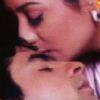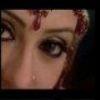Disney-like Bollywood Theme Park Wows India
by Jason Overdorf
From a distance, India's Kingdom of Dreams theme park outside New Delhi looks and sounds like one of the amber-colored, sandstone palaces of Rajasthan.
At the ticket booth, turban-clad musicians sit, horns blaring, beneath a life-sized stone elephant, and the middle-class patrons shuffle between great stone pillars before passing through a metal detector ' just like the ones omnipresent at Delhi's new, posh shopping malls ' that punctures the illusion.
Opened in August, the Kingdom of Dreams is arguably India's most ambitious entertainment complex yet. Combining a retail-and-restaurant complex called Culture Gully, an outdoor stage for productions of the Ramayana and wedding shows, and a palatial 800-seat theater, it's Disneyland meets Bollywood. And this month, it's pioneering the country's first live Broadway-style musical ' a fusion of the aesthetics of Hinduism's mythical epics and Bollywood's tearjerkers called Zangoora: the Gypsy Prince.
For the promoters ' which include the Apra Group and Wizcraft International Entertainment, the firm behind Bollywood's International Indian Film Academy awards ' it's a huge gamble.
Apart from productions of mythological plays associated with the Hindu holidays and a small, insular art scene in Delhi and Mumbai, India has no tradition of live theater. Tickets for Zangoora range from around $25 to $150 ' well out of range of the majority of local residents. And according to local press reports, the show will have to run eight times a week for two to three years for producers to recover their investment.
"Theater in India has never gone to the scale that Wizcraft and Apra have taken it," said Hussein Kuwajerwalla, the veteran television actor and Indian Idol host who plays the title role in Zangoora. "When I saw [the complex] in front of my eyes, I thought, these guys are going big. Big and how."
So far, the novelty of live action appears to be satisfying the crowd, thanks to the show's high production values ' three cinema screens complement the sets with 3-D animation, and in one underwater sequence aerial dancers hang from wires to twirl and somersault above the audience. The house was about half full for the midweek showing that I attended, and company officials say it's packed on weekends.
"What attracted me to this was the largeness of it," said television soap veteran Kashmira Irani, who plays opposite Kuwajerwalla. "When I came to this place, I was, like, Oh my God. This is the largest theater in India, the first, and to be part of something like this, I'm sure is going to create history."
The show is impressive. Kuwajerwalla, Irani and Bollywood debutante Gauhar Khan bring a healthy dose of glamour, and the costumes, sets and choreography are up to New York standards. But can it launch Indian theater?
"Sadly, in India, the only medium that people consider people to be actors is the film medium," said Khan, who recently starred opposite Ranbir Kapoor in Shimit Amin's Rocket Singh: Salesman of the Year. "But when [Bollywood] directors and producers actually see me onstage, and see what I do, they are actually taken by surprise."
Stylistically, Zangoora has more in common with the television variety show and India's increasingly elaborate mythological plays than with Broadway or Bollywood. None of the actors do their own singing, of course ' lip-syncing is the norm in Indian films. The actors' microphones are tuned loud enough that their echoing voices have no semblance of verisimilitude, and the "big speeches" are pronounced in the booming, stagy tones of televisions mythological epics.
In that respect, Zangoora fits in snugly with the rest of the theme park. Billed as "an incredible Indian experience," the Kingdom of Dreams sales pitch hinges on community and tradition, just as Zangoora's main touchstone is the neighborhood productions of the Ramayana ' called Ramlilas ' which take place on the holiday of Dussehra. This month, for instance, the park's outdoor stage will feature nightly performances of Gujarati dandiya dances for the nine nights of the Hindu Navratri festival, punctuated with its own lavish Ramlila.
But as the slogan suggests, conjuring memories of the selective photography of the Ministry of Tourism's "Incredible India" ad campaign, the community offered here is an ersatz India that has been cleaned up for the upper middle class. And by all accounts, it's better than the real thing. The consensus: It's beautiful.
"It's a beautiful place," said Neha, a 23-year-old Delhi resident who'd come to celebrate her birthday with her boyfriend. "If you can say India has been summed up in just one place, under one roof, I would say that would be it."
Take the Kingdom's version of the Indian street. Culture Gully is an air-conditioned stage set with six themed restaurants, street food stalls, a massage center, an astrology complex, retail stores selling products from India's most iconic regions and ' yes, Mahatma ' three street bars. A false blue sky overhead ensures that it is always twilight, and there is no evidence of the real bazaar's thickets of dusty electrical wires and crumbling buildings.
Everything is clean and sparkling and colorful. At one end of the street, a houseboat from the backwaters of Kerala lies grounded on a playground's worth of white sand. Midway down, you can board a train bound for Mumbai's erstwhile Victoria Terminus (now called Chatrapati Shivaji), then step across the street for a Chennai filter coffee.
It's strangely unreal, and (actually) rather fun. But there's something disturbing, too, about the idea that an Indian street where everything works is such a popular fantasy ' and charges about double the daily minimum wage for entry.


















comment:
p_commentcount